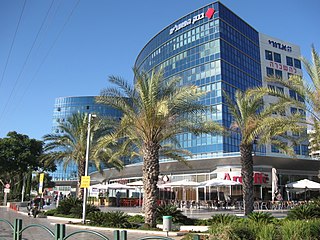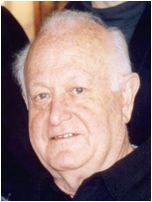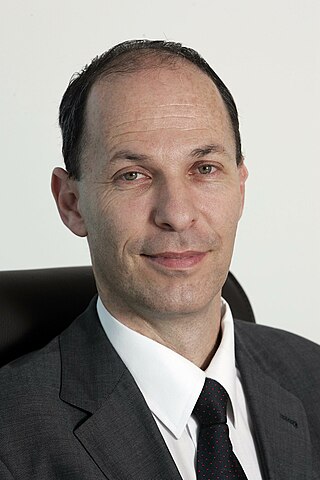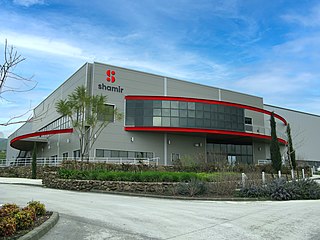
Telecommunications in Israel are the most developed in the Middle East. Israel's system consists of coaxial cables, optical fibers, and microwave radio relay. Prior to the 1990s, Israel's telecommunication market was dominated by Bezeq, a government-owned corporation. During the 1990s, the Israeli telecommunication industry transitioned from government owned monopolies to diversified private competition by a range of new companies. As of 2014, the telecommunications sector in Israel had revenues over ₪15 billion, representing about 2% of the GDP.
A state-owned enterprise (SOE) is a government entity which is established or nationalised by a national or provincial government, by an executive order or an act of legislation, in order to earn profit for the government, control monopoly of the private sector entities, provide products and services to citizens at a lower price, implement government policies, and/or to deliver products & services to the remote locations of the country. The national government or provincial government has majority ownership over these state owned enterprises. These state owned enterprises are also known as public sector undertakings in some countries. Defining characteristics of SOEs are their distinct legal form and possession of financial goals and developmental objectives. SOEs are government entities established to pursue financial objectives and developmental goals.

The government budget balance, also referred to as the general government balance, public budget balance, or public fiscal balance, is the difference between government revenues and spending. For a government that uses accrual accounting the budget balance is calculated using only spending on current operations, with expenditure on new capital assets excluded. A positive balance is called a government budget surplus, and a negative balance is a government budget deficit. A government budget presents the government's proposed revenues and spending for a financial year.

Bezeq is an Israeli telecommunications company. Bezeq and its subsidiaries offer a range of telecom services, including fixed-line, mobile telephony, high-speed Internet, transmission, and pay TV.

Bank Hapoalim is one of the largest banks in Israel, established in 1921. The bank offers a broad range of financial services to retail, corporate, and institutional customers, with a focus on retail banking services. It operates a network of more than 250 branches and offices in Israel and abroad. Bank Hapoalim is a prominent player in the Israeli banking sector, with a significant market share.
Bank Leumi is an Israeli bank. It was founded on February 27, 1902, in Jaffa as the Anglo Palestine Company as subsidiary of the Jewish Colonial Trust Limited formed before in London by members of the Zionist movement to promote the industry, construction, agriculture, and infrastructure of the land hoped to ultimately become Israel. Today, Bank Leumi is Israel's largest bank, with overseas offices in Luxembourg, US, Switzerland, the UK, Mexico, Uruguay, Romania, Jersey, and China.

Israel Discount Bank, Ltd. is a retail bank, commercial bank, private bank and financial services company headquartered in Tel Aviv with 112 branches throughout Israel.

Israel Electric Corporation is the largest supplier of electrical power in Israel and the Palestinian territories. The IEC builds, maintains, and operates power generation stations, sub-stations, as well as transmission and distribution networks in Israel.

The Union Bank of Israel, Ltd. ; TASE: UNON), more widely known by its Hebrew name, Bank Igud, is the sixth largest Israeli bank, with thirty branches spread around the country.

Moshe Sanbar was an economist and Israeli public figure. He served as Governor of the Bank of Israel (1971–76) and chairman of Bank Leumi (1988–95).
Israel Corporation is Israel's largest holding company. It was founded in 1968 by the Government of the State of Israel.

Ramat Hovav, new official name Ne'ot Hovav, is an industrial zone in southern Israel and the site of Israel's main hazardous waste disposal facility. Ramat Hovav Industrial Zone is the locus of 19 chemical factories, including Makhteshim Agan, a pesticide plant; Teva Pharmaceutical Industries, a pharmaceuticals plant; Israel Chemicals, a bromine plant.

Bank of Jerusalem, Ltd. is Israel's seventh largest bank, with total assets of 9,301 million shekels. Bank of Jerusalem is headquartered in Jerusalem and has 24 branches around the country.

Israel "Izzy" Tapoohi is the President and Chief Executive Officer of Birthright Israel Foundation, the non-profit organization that raises funds in the US to support Birthright Israel trips.
Pointer Telocation was a publicly traded company, headquartered in Israel, that developed automatic vehicle location solutions and provided roadside automotive service. Its shares were traded on the NASDAQ Capital Market and were listed on the Tel Aviv Stock Exchange until 2012, and then again starting April 2016. In October 2019, the company merged with I.D. Systems, Inc., to form PowerFleet.

Ori Yogev is an Israeli businessman who served as the appointed head of the Budget Division in the Ministry of Finance between 2002 and 2004. Between 2009 and 2010, he served as Chairman of the Israel National Economic Council Advisory Committee. From 2013 to 2017 Yogev served as director of the Government Companies Authority. Yogev is one of the founders and the Chairman of the Aluma Infrastructure Investment Fund. Yogev lives in Modi'in-Maccabim-Re'ut and is married with five children.

Avraham "Avi" Gabbay is an Israeli businessman and politician. He was CEO of the telecommunications company Bezeq from 2007 to 2013, then entered politics. He served as Minister of Environmental Protection between 2015 and 2016 as a member of the Kulanu party, before being elected leader of the Israeli Labor Party in 2017. He was elected to the Knesset in April 2019, but resigned as leader shortly afterwards. He did not run in the September 2019 elections. After leaving politics, Gabbay returned to the business world. He is currently the CEO of Cellcom.
Amnon Dick (Hebrew: אמנון דיק; is an Israeli businessman, manager and director.

Bank Massad is an Israeli bank with 21 branches and branches throughout the Israel.

Shamir Optical IndustryLtd. is an international company headquartered in Kibbutz Shamir, Israel that develops and manufactures optical lenses for eyeglasses. In 2005, the company issued dual listings, on the Tel Aviv Stock Exchange and NASDAQ, becoming the first company from the kibbutz industry to be listed on NASDAQ.














